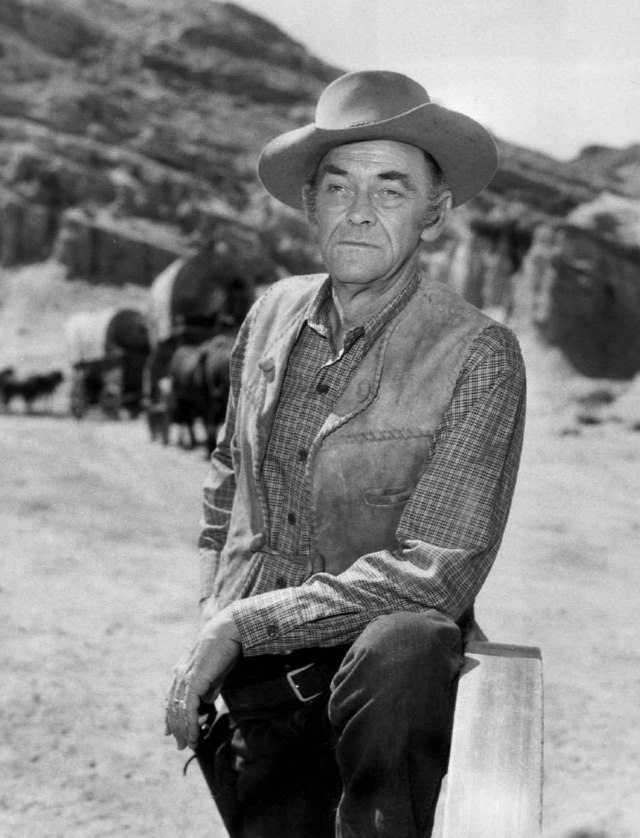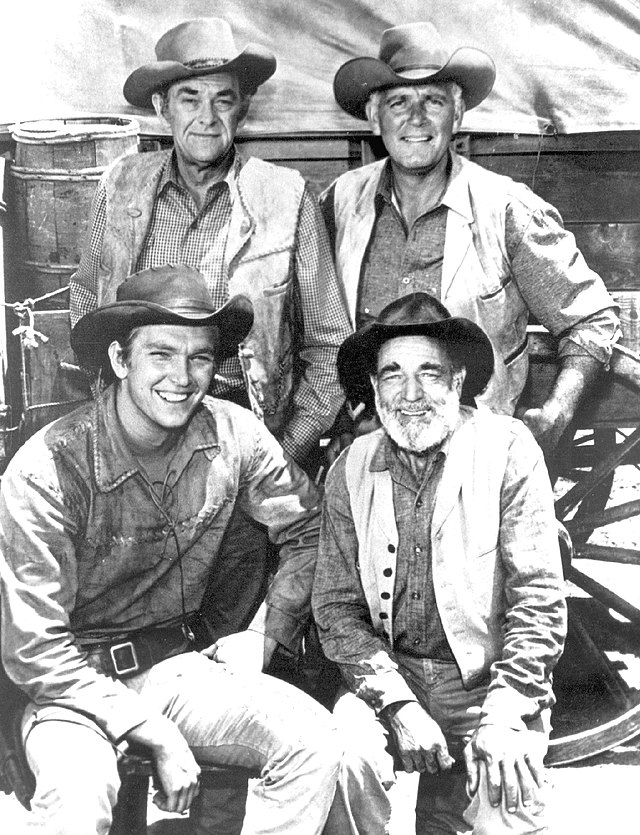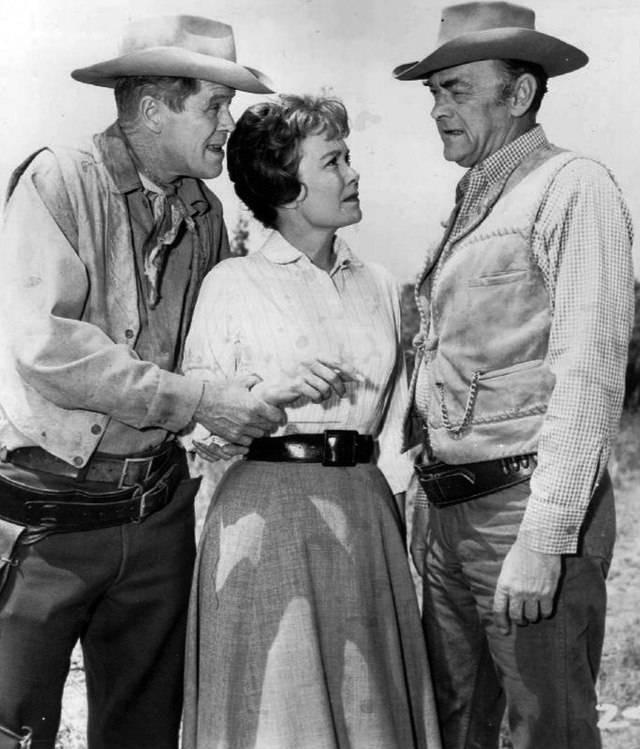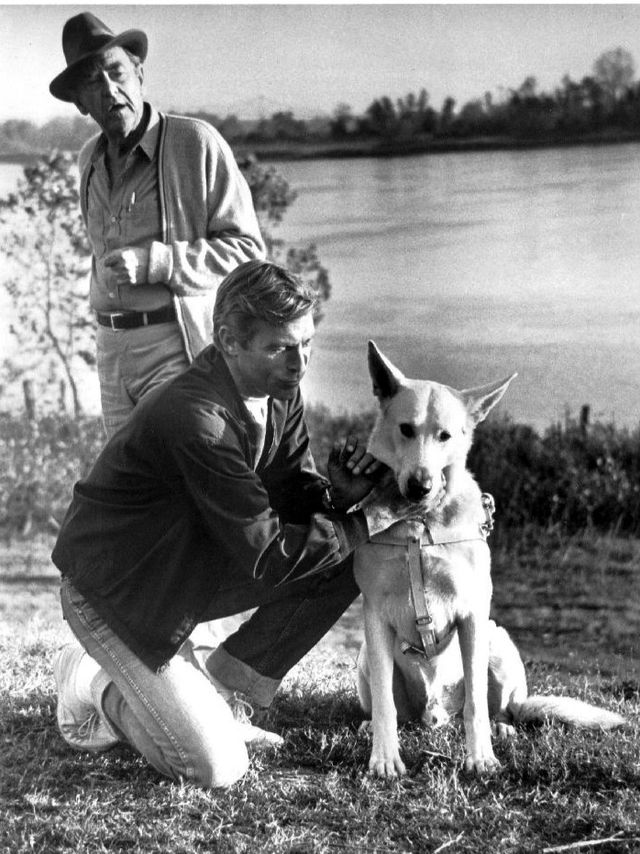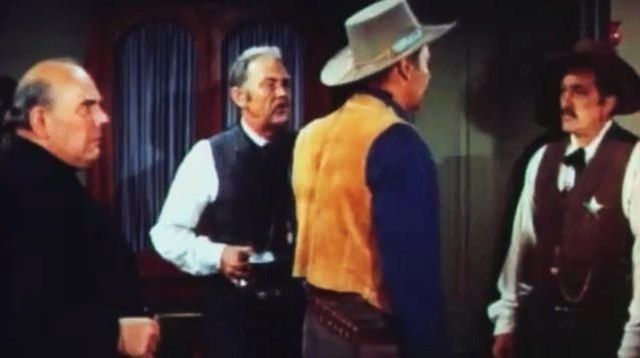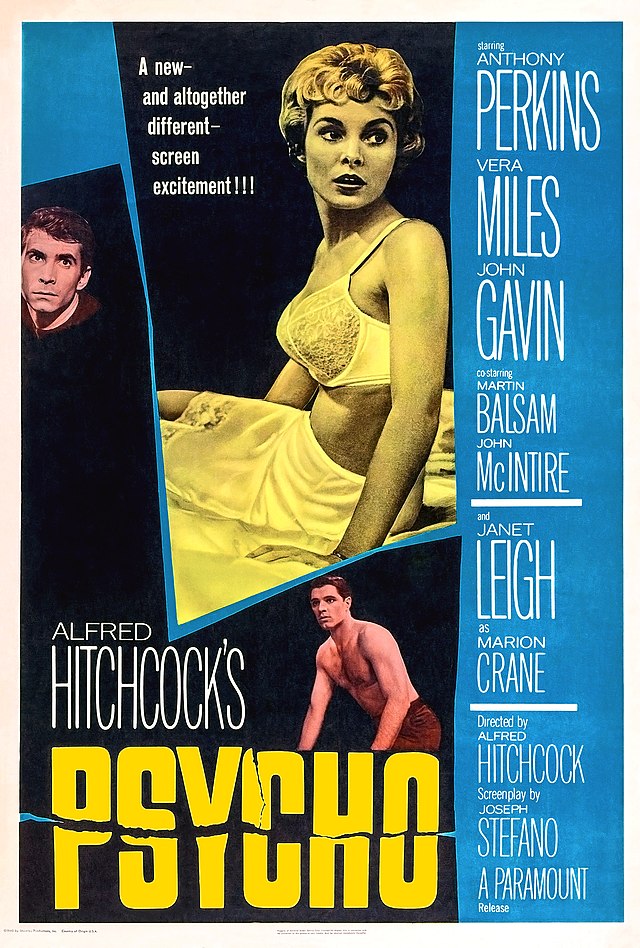John McIntire
back| Full Name | John Herrick McIntire |
| Stage Name | John McIntire |
| Born | June 27, 1907 |
| Birthplace | Spokane, Washington, USA |
| Died | January 30, 1991 |
| Buried | Tobacco Valley Cemetery, Eureka, Montana, USA |
| Married to | Jeanette Nolan (1935–1991, his death) |
| Children | Holly McIntire (photographer) and Tim McIntire (actor and musician, died in 1986) |
| Notable films | The Asphalt Jungle (1950) - Psycho (1960) - Elmer Gantry (1960) - The Far Country (1954) - Herbie Rides Again (1974) |
John McIntire
Hollywood's Quiet Backbone
John McIntire was a versatile American character actor known for his authoritative roles in Westerns and crime dramas. McIntire started in radio before transitioning to films in the late 1940s, appearing in classics like The Asphalt Jungle (1950) and Psycho (1960).
He became a staple of Western television, notably replacing Ward Bond as the lead in Wagon Train and starring in The Virginian.
Related
John McIntire (1907 – 1991)
Biography and Movie Career
John McIntire was a seasoned character actor whose distinctive voice, rugged looks, and subtle performances made him a familiar presence in American cinema and television. He had a career that spanned over five decades, during which he became known for his roles in Westerns, crime dramas, and historical films. His work ethic, deep commitment to his craft, and quiet life away from Hollywood made him a beloved figure among peers and fans alike. This biography delves deeper into the personal life, early years, rise to success, passions, and his eventual death.
Early Life and Beginnings
John Herrick McIntire was born on June 27, 1907, in Spokane, Washington. Shortly after his birth, his family moved to Montana, where McIntire would spend much of his formative years. Growing up in the rugged wilderness of the American West fostered a lifelong love for nature, which later influenced his preference for Western roles in film and television. His father was a farmer and rancher, which further strengthened McIntire's connection to the land and the simple life.
As a young man, McIntire attended the University of Southern California (USC), though he didn’t initially set out to become an actor. He studied speech and journalism, aspiring to a career in either law or education. However, his deep, resonant voice led him to radio, where he found early success as a narrator and character actor. His work on radio programs such as The March of Time gave him the foundation for what would later be a successful transition to the stage, television, and film.
Path Towards Success
McIntire’s career in acting began with radio, which was the dominant form of entertainment in the 1930s and early 1940s. His rich baritone voice, perfect for narrating dramatic stories and documentaries, quickly made him one of the more recognizable voices on air. He worked on programs like The Cavalcade of America and The Lux Radio Theatre, performing in a wide variety of roles. By the late 1930s, he was also performing on Broadway, which provided him a new platform to refine his craft.
McIntire’s break into films came in the late 1940s, when Hollywood began to take notice of his work. His debut film was Call Northside 777 (1948), a crime drama that showcased his ability to portray morally complex characters. His performances were understated yet powerful, and he became known for portraying authoritative or corrupt figures—whether as lawmen, politicians, or bureaucrats. His role in The Asphalt Jungle (1950) as a morally ambiguous police commissioner marked him as a versatile actor capable of excelling in both leading and supporting roles.
Western films became McIntire’s forte, a natural fit given his upbringing in Montana. Films like Winchester ’73 (1950) and The Far Country (1954) saw him cast as sheriffs, ranchers, or pioneers, roles that highlighted his rugged persona and stoic demeanor. One of his most notable appearances was in Alfred Hitchcock’s Psycho (1960), where he portrayed the sheriff in the film’s later scenes, further broadening his acting range.
Television Fame
While McIntire found consistent work in films, television became the medium that truly cemented his legacy. In 1961, McIntire replaced the late Ward Bond as the lead on the popular NBC Western series Wagon Train. Taking over as the new wagon master, McIntire’s portrayal of Chris Hale was warmly received, and he continued in the role until the show ended in 1965. His strong screen presence and ability to convey wisdom and authority were perfect for the Western genre.
Later, McIntire joined the cast of The Virginian from 1967 to 1970, further strengthening his association with the genre. His ability to project both strength and vulnerability in these roles made him a favorite among Western fans.
Personal Life
Behind the scenes, McIntire led a quiet, contented life, far removed from the Hollywood limelight. In 1935, he married actress Jeanette Nolan, a talented character actress in her own right. Their marriage lasted over 50 years, a rare feat in Hollywood. The couple shared a deep bond, both professionally and personally. They appeared together in several film and television productions, including The Virginian, Gunsmoke, and The Twilight Zone. Their marriage was one of mutual respect and love, and they balanced their careers with their personal life seamlessly.
Together, they had two children. Their daughter, Holly McIntire, became a successful photographer, while their son, Tim McIntire, followed in his parents' footsteps as an actor and musician. Unfortunately, Tim passed away in 1986, a tragic loss for the family.
McIntire was known for his passion for nature, particularly the wilderness of Montana. After achieving success in Hollywood, he and his family moved to Eureka, Montana, where he could be closer to the open spaces he loved. The McIntires owned a ranch there, and John spent much of his time enjoying the tranquility of rural life, away from the frenzy of Los Angeles.
Passions
McIntire had a deep love for acting, but his true passion was the simple, rural life. His upbringing in Montana influenced his appreciation for the outdoors, and he often said that he preferred working in Westerns because it reminded him of home. This passion for the natural world also led to a lifelong affinity for horses, hunting, and ranching.
Despite his rugged exterior, McIntire was known to be gentle, soft-spoken, and humble. He took pride in his work but never sought the limelight or recognition. Instead, he focused on delivering consistent, nuanced performances that enhanced the films and shows he worked on.
Death and Legacy
John McIntire continued to work steadily into the 1980s, although he slowed down as he aged. His last film appearance was in Turner & Hooch (1989), a lighthearted role that showed his enduring charm as an actor.
On January 30, 1991, McIntire passed away from emphysema at the age of 83. His wife, Jeanette Nolan, survived him by just two years, passing away in 1993. McIntire was buried in Tobacco Valley Cemetery in Eureka, Montana, a place he had grown to love during his later years.
John McIntire left behind a legacy of quiet dignity, professionalism, and enduring performances. His ability to bring depth to supporting characters made him one of the most respected character actors of his time. His deep connection to nature and his love for the simple life made him a unique figure in Hollywood, one whose influence and memory continue to resonate with fans of classic films and television.
John McIntire Video Tribute
John McIntire’s Acting Style
John McIntire’s acting style was defined by a combination of quiet authority, subtlety, and versatility, making him a quintessential character actor. He was rarely the lead, but his presence often elevated the films and shows he appeared in, bringing depth and complexity to supporting roles. His ability to blend seamlessly into a wide variety of characters allowed him to craft a long and steady career that spanned decades.
Subtle Authority and Commanding Presence
McIntire’s most distinctive quality as an actor was his ability to convey authority without bombast or theatrics. Whether he was playing a judge, a sheriff, a military officer, or a corrupt official, he exuded a natural gravitas that made his characters believable as figures of power. He often portrayed men who had seen the harshness of life and carried a sense of world-weariness or stoic determination. His voice—a rich, deep baritone—added to this commanding presence, whether he was delivering lines of quiet wisdom or imposing authority.
Despite the dominance of his characters’ positions—lawmen, patriarchs, or authority figures—McIntire never relied on overt displays of strength. He used subtlety to convey control, often allowing his calm demeanor to say more than any dramatic outbursts could. His performances were often understated but no less impactful, and this quiet strength became one of his trademarks.
Ruggedness and Connection to the Western Genre
McIntire’s rugged appearance and natural connection to the American West made him a staple of the Western genre. His tall, sturdy frame, weathered features, and no-nonsense demeanor allowed him to slip effortlessly into roles as ranchers, cowboys, and pioneers. He had a natural affinity for playing characters rooted in the frontier, and his upbringing in rural Montana lent authenticity to his performances.
In Westerns, McIntire often played either the seasoned veteran who dispensed wisdom or the hardened authority figure enforcing the law. His performances were grounded in realism, often rejecting the larger-than-life heroism of other Western stars for a more measured, human approach. His characters were typically men shaped by their environment—calm, methodical, and reflective of the rough, uncompromising world they inhabited. His portrayal of Western figures resonated because he brought to the screen a sense of history and realism, making his characters feel lived-in and fully realized.
Emotional Depth and Complexity
Though McIntire often played characters of authority, he was also able to convey vulnerability and emotional complexity when required. He was particularly skilled at imbuing his roles with subtle layers of emotion, often allowing his characters’ moral struggles to simmer beneath the surface. In films like The Asphalt Jungle, where he played a corrupt police commissioner, he managed to make his character more than just a villain. He gave him shades of humanity and moral conflict, making his performance more nuanced and engaging.
In other roles, such as in The Tin Star or Psycho, McIntire’s characters reveal moments of quiet reflection or concern that hint at an inner life beneath their stoic exteriors. This ability to show restraint while still suggesting emotional depth is what made McIntire stand out in an era where dramatic performances could often lean towards the overly theatrical.
Adaptability Across Genres
Although McIntire is often remembered for his Westerns, his adaptability across genres is one of the most impressive aspects of his career. He was equally comfortable in film noir, dramas, historical epics, and even light-hearted family films. In noir films like Call Northside 777 and The Racket, McIntire used his calm, authoritative presence to play morally ambiguous figures who operated in a world of gray areas, often balancing integrity and corruption.
In family films like Summer Magic and Herbie Rides Again, McIntire displayed a gentler, more whimsical side. He brought warmth, humor, and a fatherly wisdom to these roles, demonstrating that he could connect with audiences of all ages.
His versatility extended to television as well, where he became a regular presence in a variety of shows, from hard-hitting Westerns like Wagon Train and The Virginian to dramatic anthologies such as The Twilight Zone. He could shift seamlessly from one role to the next, always bringing credibility and nuance, regardless of the genre or the size of the role.
Economy of Movement and Expression
One of the hallmarks of McIntire’s acting style was his economy of movement and expression. Unlike many actors who might resort to broad gestures or exaggerated expressions, McIntire conveyed emotion and intent with subtle, minimalistic choices. He often used stillness and silence to his advantage, allowing his presence to dominate a scene without overtly drawing attention to himself. His facial expressions were often restrained, but a slight change in his eyes or the tightening of his jaw could communicate volumes about what his character was thinking or feeling.
This restraint lent a sense of authenticity to his performances, making them feel more grounded and natural. Audiences believed in the reality of his characters because McIntire never overplayed his hand—he trusted that less was more and that a well-timed look or gesture could be as powerful as any line of dialogue.
Voice and Vocal Precision
McIntire’s voice was perhaps one of his most powerful tools as an actor. His deep, gravelly voice had a richness and authority that made him perfect for narrations and voice-overs, as well as for characters who needed to command attention. He had remarkable vocal control, capable of modulating his tone to convey a wide range of emotions—from stern and authoritative to soft and contemplative.
His background in radio, where voice is the primary tool of the actor, clearly influenced his mastery of vocal performance. Whether he was portraying a hardened lawman or a gentle patriarch, McIntire’s voice always added layers to his performances, offering insight into the internal world of his characters.
Understated Style and Focus on Supporting Roles
Throughout his career, McIntire avoided the limelight, preferring to inhabit supporting roles rather than seeking out lead parts. His approach was that of a craftsman—he focused on the role at hand, often stealing scenes with his understated, authentic performances. While he rarely took center stage, his supporting roles often became the emotional or moral core of a story, adding texture and depth to the larger narrative.
This humility and focus on craft over fame allowed McIntire to sustain a long and varied career. He was highly respected by his peers and directors, who valued his professionalism, reliability, and dedication to the art of acting.
John McIntire’s acting style was characterized by quiet strength, emotional subtlety, and versatility. He excelled in a wide range of genres but was especially beloved for his work in Westerns, where his rugged persona and calm authority were perfect fits. McIntire had the ability to say much with very little, using his voice, stillness, and carefully chosen movements to convey complex emotions and ideas. He was an actor’s actor, a performer who preferred to let the work speak for itself, and whose body of work remains a testament to the power of subtle, nuanced acting.
Awards and Recognition
Emmy Awards:
- Nomination: In 1959, John McIntire was nominated for a Primetime Emmy Award for Best Supporting Actor in a Dramatic Series for his role as Police Lieutenant Dan Muldoon in Naked City (the 1958-1959 TV series). This role highlighted his ability to deliver complex performances in a crime drama format. Although he did not win, this nomination underscored his talent and versatility, particularly in television.
Hollywood Walk of Fame:
- John McIntire was awarded a star on the Hollywood Walk of Fame in recognition of his contributions to the television industry. His star is located at 6801 Hollywood Boulevard. This honor was a significant recognition of his long career, particularly his work on popular television series such as Wagon Train and The Virginian.
Western Heritage Awards:
- McIntire's body of work, particularly in the Western genre, earned him admiration and respect from organizations dedicated to preserving the legacy of the American West. While McIntire did not receive any individual Western Heritage Awards, his work in Western films and television helped earn recognition for the projects he was involved in, many of which won honors for their depictions of the frontier.
Recognition in Western Genre:
- John McIntire is widely regarded as one of the great character actors of Western films and television. His roles in iconic series such as Wagon Train and The Virginian earned him a lasting legacy in the genre, and he remains a favorite among fans of classic Westerns.
- His long-standing association with the Western genre also earned him admiration from industry professionals and fans, and his portrayal of wise, rugged, or morally complex frontier characters left a lasting impact on the genre.
Legacy and Posthumous Recognition:
- Though McIntire was not the recipient of major film awards like the Academy Awards, his legacy as a dependable and versatile character actor has been honored posthumously. His work continues to be celebrated in retrospectives and discussions of classic Hollywood character actors.
- He was often mentioned in discussions about the best supporting actors in classic Hollywood, earning a reputation for consistently delivering performances that enhanced the films and television shows he was part of.
Impact on Western Television:
- In addition to his Hollywood Walk of Fame star, McIntire's impact on Western television shows like Wagon Train and The Virginian helped solidify his standing as one of the genre's key figures. Though he was never awarded individual honors for these performances, his ability to seamlessly take over the lead role on Wagon Train after the death of Ward Bond was recognized as a significant achievement.
Personal Quotes
On Acting and His Career:
- "I like playing older men because there's a feeling of completion, of strength and fulfillment."
McIntire often played older, wiser characters, and this quote reflects his comfort and affinity for these roles, especially in Westerns where these characters carried a sense of gravitas and life experience.
- "I'm in this business for the long haul. I like the work and, as long as it stays fun and interesting, I'll keep at it."
This quote encapsulates McIntire’s approach to acting. He wasn’t someone driven by fame or accolades; instead, he focused on the work itself and enjoyed the steady, fulfilling nature of his career.
On His Love for Westerns:
- "Westerns are like a second home to me. I grew up out West, and I know the land, the people, and the way things worked back then. It’s familiar territory, and that helps when you’re trying to bring authenticity to a role."
His Montana upbringing made him feel a natural connection to the Western genre. He brought that authenticity to his roles in numerous Western films and television shows, helping to define the archetype of the rugged, seasoned frontiersman.
- "There’s a beauty in the simplicity of the Western. It’s not about flashy dialogue or complicated plots, it’s about survival, honor, and justice. I think that’s why people connect to them."
McIntire had a deep appreciation for the Western genre's simplicity and moral clarity, themes that resonated with audiences and suited his restrained acting style.
On His Approach to Character Acting:
- "I always thought the best actors were the ones you didn’t notice until they were gone. It’s about blending in, making the story work, not standing out for the sake of it."
This quote speaks to McIntire’s modesty and his philosophy as a character actor. He believed in serving the story rather than seeking personal attention, which made him a reliable and respected presence in both film and television.
- "A good character actor brings life to the story, fills in the gaps, and lets the main actors shine. If I’ve done that, then I’ve done my job."
McIntire saw his role as a character actor as complementary to the leads, bringing depth to the overall narrative without seeking the spotlight.
On His Long-Lasting Marriage to Jeanette Nolan:
- "We’ve been together so long because we’ve learned the art of giving each other space. We respect each other’s work, but we’re not in each other’s pockets all the time."
McIntire was married to actress Jeanette Nolan for over 50 years, and their relationship was one of mutual respect and independence. This quote reflects how they balanced their personal and professional lives.
- "We’ve done a lot of work together over the years, but we’ve never gotten tired of each other. I guess that’s the secret, don’t you think?"
McIntire and Nolan appeared in several projects together, and their partnership was well-known and admired in Hollywood.
On Living a Quiet Life in Montana:
- "I never much cared for the Hollywood scene. Montana is home, and it’s where I feel most at peace."
After achieving success in Hollywood, McIntire and his family moved to a ranch in Montana, where he could live a quieter life. This quote reflects his preference for simplicity and nature over the glitz and glamour of Hollywood.
- "Fame’s never really interested me. What I value is the work, and when the day’s done, I want to be able to go home, sit on the porch, and enjoy the view."
McIntire often spoke about his disinterest in fame. His priorities were grounded in his craft and his personal life, especially his connection to nature.
Movies featuring John McIntire
1940s
1948 – Call Northside 777
- Synopsis: A documentary-style crime drama starring James Stewart as a reporter who uncovers evidence that could free a wrongly convicted man. McIntire plays a minor but crucial role as a prison warden.
1949 – The Street with No Name
- Synopsis: A film noir about an undercover FBI agent infiltrating a gang. McIntire plays the gang’s doctor, who helps the criminal mastermind stay one step ahead of the law.
1950s
1950 – The Asphalt Jungle
- Synopsis: A classic heist film about a group of criminals planning and executing a jewel robbery. McIntire portrays a corrupt police commissioner, playing a pivotal role in the movie's theme of crime and corruption.
1950 – Winchester '73
- Synopsis: A Western starring James Stewart about a man on a journey to recover his prized rifle, which has passed through several hands. McIntire plays a shifty trader who gets involved in the drama surrounding the rifle.
1951 – The Racket
- Synopsis: A gritty crime drama where McIntire plays a judge involved in a war between a powerful crime syndicate and a hard-nosed police captain.
1952 – The World in His Arms
- Synopsis: Set during the 1850s, this adventure film follows a sea captain (Gregory Peck) as he pursues the woman he loves. McIntire has a smaller role as a ship owner in the bustling seafaring world.
1952 – Horizons West
- Synopsis: In this Western, McIntire plays Ira Hammond, a law-abiding man whose sons turn to criminal activities after the Civil War.
1952 – The Lawless Breed
- Synopsis: This film tells the story of infamous outlaw John Wesley Hardin. McIntire portrays Hardin’s father, offering a sense of moral conflict in the outlaw’s turbulent life.
1953 – War Arrow
- Synopsis: A Western set in Texas during the Indian Wars. McIntire plays Col. Jackson Meade, a military officer managing a fort beset by hostilities.
1953 – The Mississippi Gambler
- Synopsis: A period drama about a riverboat gambler in the 19th century. McIntire portrays a secondary character in this romantic adventure.
1954 – The Far Country
- Synopsis: Another Western starring James Stewart, this time about cattle drivers in the Yukon Territory. McIntire plays Judge Gannon, a corrupt lawman who causes problems for Stewart’s character.
1954 – The Black Dakotas
- Synopsis: Set during the Civil War, this Western tells the story of a Confederate agent trying to incite trouble in Dakota Territory. McIntire plays a small but memorable role as a settler.
1955 – The Phenix City Story
- Synopsis: A crime thriller based on true events in Phenix City, Alabama, where a father and son fight to bring law and order to a corrupt town. McIntire plays a reform-minded lawyer.
1956 – Backlash
- Synopsis: In this Western, McIntire plays Jim Bonniwell, an important character involved in a mystery revolving around hidden gold and a series of killings.
1956 – The Kentuckian
- Synopsis: A pioneer drama directed by and starring Burt Lancaster about a man and his young son trying to make a new life in Texas. McIntire plays the local sheriff.
1957 – The Tin Star
- Synopsis: In this classic Western, McIntire portrays a small-town doctor in a story about an inexperienced sheriff learning the ropes from an experienced bounty hunter (Henry Fonda).
1957 – The Halliday Brand
- Synopsis: McIntire plays Big Dan Halliday, a ruthless patriarch who believes in vigilante justice, with his son (Joseph Cotten) rebelling against his harsh methods.
1958 – The Light in the Forest
- Synopsis: A historical drama about a white boy raised by Native Americans who must re-integrate into settler society. McIntire plays John Butler, the boy’s biological father.
1958 – Wild Heritage
- Synopsis: A family drama about settlers traveling to Oregon, where McIntire plays Jud Mulvey, a retired sheriff turned settler, helping guide the family through their journey.
1959 – The Gunfight at Dodge City
- Synopsis: In this Western starring Joel McCrea, McIntire plays Doc Sam Tremaine, a friend of the protagonist who helps him navigate the dangerous world of Dodge City.
1960s
1960 – Psycho
- Synopsis: Alfred Hitchcock’s iconic thriller. McIntire plays Sheriff Chambers, who investigates the disappearance of Marion Crane and slowly uncovers the truth about Norman Bates.
1960 – Elmer Gantry
- Synopsis: A drama about a con-man preacher (Burt Lancaster) who becomes involved in a traveling evangelical roadshow. McIntire plays Rev. John Pengilly, a religious leader who confronts Gantry's questionable practices.
1961 – Two Rode Together
- Synopsis: In this John Ford Western, McIntire plays Major Frazer, who oversees the efforts to negotiate the release of white captives held by Native Americans.
1962 – The Longest Day
- Synopsis: This epic war film about the D-Day invasion features McIntire in a minor role as an American general, contributing to the large ensemble cast telling the story from multiple perspectives.
1963 – Summer Magic
- Synopsis: A Disney family film about a widow and her children who move to a small town in New England. McIntire plays Osh Popham, a kind-hearted handyman who helps the family adjust to their new life.
1965 – Shenandoah
- Synopsis: A Civil War drama starring James Stewart as a Virginia farmer trying to keep his family safe from the conflict. McIntire plays a preacher caught up in the moral struggles of the war.
1966 – The Rare Breed
- Synopsis: In this Western, McIntire plays Alexander Bowen, a British cattle breeder involved in bringing new cattle stock to the American West, with Maureen O’Hara and James Stewart.
1970s
1970 – The Cheyenne Social Club
- Synopsis: A Western comedy starring James Stewart and Henry Fonda. McIntire plays the bartender in a story about two cowboys who inherit a brothel.
1971 – Willard
- Synopsis: A horror film about a socially awkward young man who befriends a colony of rats. McIntire plays Willard's father in flashback scenes, offering insight into his troubled upbringing.
1974 – Herbie Rides Again
- Synopsis: A Disney comedy sequel about a sentient Volkswagen Beetle. McIntire plays Uncle Alonzo Hawk, a scheming businessman who tries to take control of a beloved old building.
1980s
1989 – Turner & Hooch
- Synopsis: A buddy-cop comedy starring Tom Hanks as a detective who partners with a large dog to solve a crime. McIntire plays Amos Reed, an eccentric character who owns the dog, Hooch.

